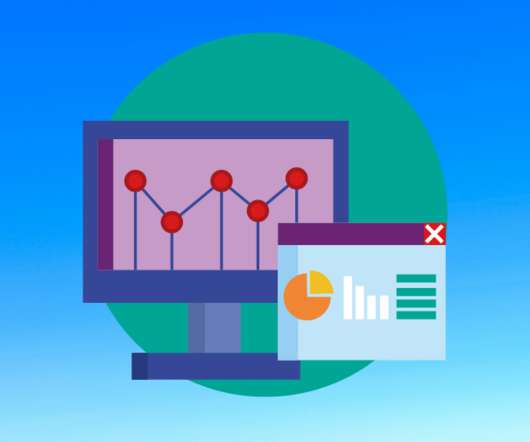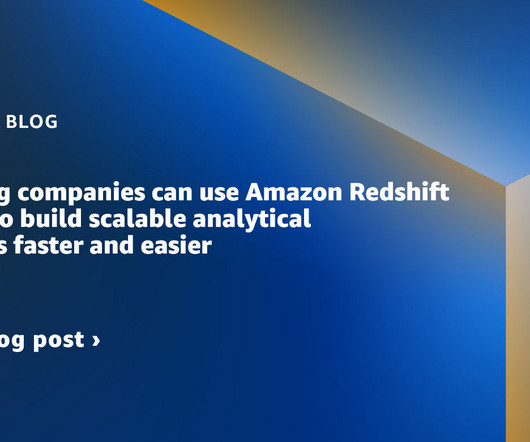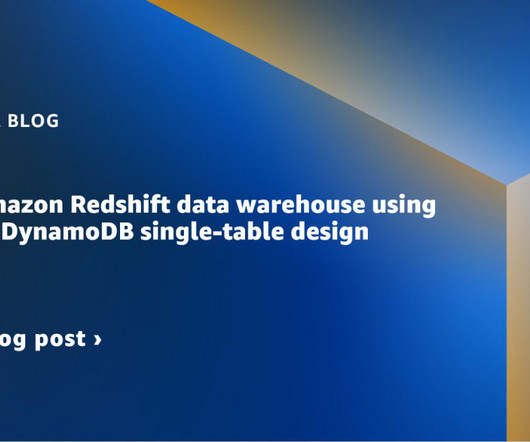How Aura from Unity revolutionized their big data pipeline with Amazon Redshift Serverless
AWS Big Data
APRIL 4, 2024
Amazon Redshift is a recommended service for online analytical processing (OLAP) workloads such as cloud data warehouses, data marts, and other analytical data stores. These campaigns are optimized by using an AI-based bid process that requires running hundreds of analytical queries per campaign.














Let's personalize your content